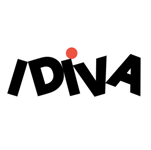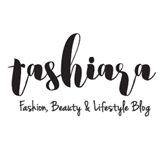7 beauty terms you should know about

If you’re reading this article, there's a good chance you enjoy reading content based on beauty and cosmetics, but there’s also a chance that at times you find yourself to be lost amongst those fancy and ‘scientific’ words.
Understandably, with a plethora of information out there, the beauty world can be pretty confusing and intimidating, making it difficult for some to access and learn things.
Multiple times you use a product because you remember some influencer praising it but now as you read the ingredients, you don’t understand a word.
But worry not, we’ve got your back! Here we have compiled a list of 7 beauty related terms you as an enthusiast should know.
1. Antioxidants

Antioxidants are naturally occurring vitamins and minerals—like vitamins A, C, E, and green tea that protect your skin against free radicals (molecules in the environment that damage your skin — emerging from air pollutants, chemicals, and cigarette smoke etc).
These antioxidants neutralise those free radicals to protect your skin from damage. Some antioxidants also brighten your skin, calm irritation, and even smooth fine lines.
Green tea is known for its soothing effect, vitamin C is known for its brightening properties, vitamin A helps in ceasing ageing and vitamin E is best known for moisturising the skin.
2. Hyper-pigmentation

Simply put, any discolouration or unevenness in colour on your skin is known as hyper-pigmentation. In other words, it's an inconsistency in colour when compared to your natural skin tone.
This can be in multiple forms, such as sun spots, freckles, scars from acne etc. Any exposed skin can be vulnerable to hyper-pigmentation; considering that the suns UVA and UVB rays are a leading factor.
The rays when penetrate the skin, increase the amount of melanin present and thus lead to aforementioned discolouration.
Other factors responsible could be pollution, hormones, injuries, blue light from computers and Tv’s and many more.
3. Black and White heads

These two terms have to be the most commonly used words in the beauty community. Both blackheads and whiteheads occur when oil, dead skin, and bacteria become trapped in your skin's tiny pores.
With blackheads, the pore remains open, so the material is exposed to the air and changes colour. Whiteheads occur when debris gets trapped in a pore.
4. Pimples and acne

Most people use both the terms interchangeably, whereas acne is a chronic condition wherein pimples are one of the symptoms. Under your skin, your pores are connected to glands that make an oily substance known as sebum.
The glands and pores are connected by a canal known as a follicle that has a thin hair that grows out to the skin’s surface.
When sebum and dead skin cells clump together, they form a plug in the follicle. Bacteria in the plug causes inflammation, leading to red pimples in acne.
5. Collagen

Collagen is a protein in our body, responsible for giving the skin strength and elasticity.
Often described as scaffolding for the skin, it acts like a trampoline providing a supportive base structure and giving us what we need for bouncy, healthy-looking skin.
Agreeably when it is naturally found in our skin, the question arises as to why its added into creams.
The simple answer would be that with age our body’s capacity to produce collagen decreases and the levels start to become inconsistent; thereby prompting people to use products pumped with the protein. Check out the best collagen powder in India.
6. Keratin

Hairstylists can be heard using the words “keratin treatment” pretty frequently. If you’re like me, there's a chance you don’t know what it means.
Keratin is the type of protein that makes up your hair, skin, and nails, it is said to help smoothen your hair; thereby reducing the frizziness.
It works by smoothing down the cells that overlap to form your hair strands. The layers of cells, called the hair cuticle, theoretically absorb the keratin, resulting in hair that looks full and glossy.
7. Parabens

Parabens are a type of chemical used to prolong the shelf life of multiple cosmetic items, such as shampoos, lipsticks, lotions etc.
They prevent the growth of bacteria and mould within the product, as it sits on your shelf for months.
Many companies have started coming out with ranges of products that are paraben free, as research shows that it might be contributing to certain health issues.
So now that you know some of the important and frequently used terms, the next time you go out to buy something, hopefully you will be able to make a more informed choice.
If you have any other terms that you would like to share, drop them in the comments below.








